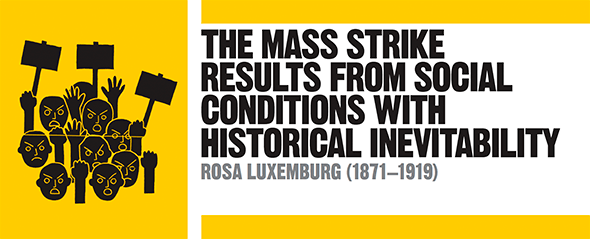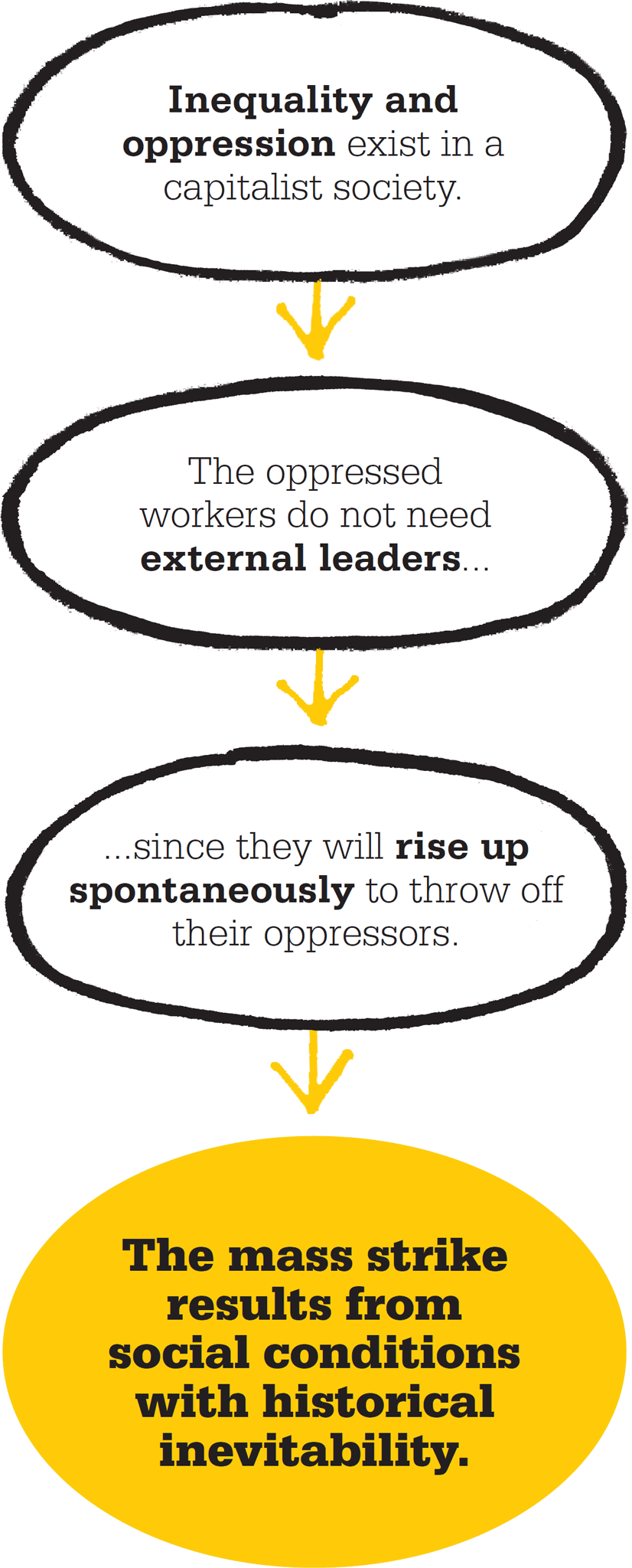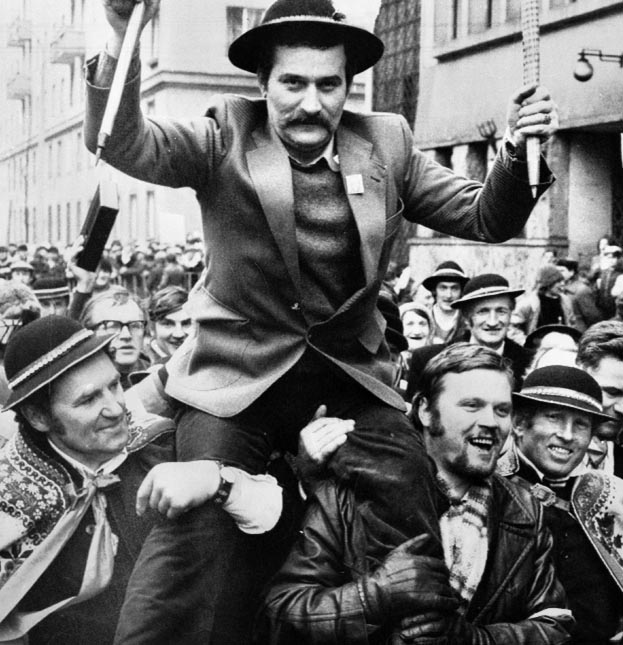
IN CONTEXT
Revolutionary socialism
The mass strike
1826 The first General Strike in the UK is held in response to mine owners attempting to reduce miners’ pay.
1848 Karl Marx theorizes in his Communist Manifesto that revolution and historical change are the result of class conflict between dominant and subordinate classes.
1937–38 Stalin’s forcible transformation of the USSR into an industrial power leads to his Great Purge. Hundreds of thousands are executed.
1989 Solidarity, a Polish trade union, defeats the Communist Party with a coalition government led by Lech Walesa.
The Marxist theorist Rosa Luxemburg articulated the idea of the mass strike in a revolutionary way, emphasizing its organic nature. She identified both political and economic mass strikes as the most important tools in the struggle for workers’ power.

Luxemburg’s ideas were formed in response to widespread workers’ strikes and the Bloody Sunday protest in St. Petersburg that mushroomed into the Russian Revolution of 1905.
"The mass strike is merely the form of the revolutionary struggle at a given moment."
Rosa Luxemburg
A social revolution
Karl Marx and Friedrich Engels had imagined that a mass strike of the proletariat would be led by a professional vanguard outside or “above” the working class, while to anarchist theorists, revolution was sparked through extraordinary acts of destruction and propaganda. To Luxemburg, neither idea was the right way to understand or facilitate the mass strike. Rather, she saw many different dynamics working together in a social revolution.
In her work Dialectic of Spontaneity and Organization, Luxemburg explained that political organization would develop naturally from within, as workers learned by participating in strikes for better wages and later for political ends. Revolution would teach itself to the participating masses. She believed that leaders should be nothing more than the conscious embodiment of the feelings and ambitions of the masses, and that mass strikes would bring about a new form of socialism. The events of 1905 had shown Luxemburg that a general strike could not be decreed by an executive decision, nor could it reliably be incited by grass roots groups, but that it was a natural phenomenon of the proletarian consciousness. It was an inevitable result of social realities, particularly the hardship of working people forced, in order to survive, to carry out onerous, underpaid work in the new industrial workplaces of Central Europe and Russia.

Lech Walesa founded Solidarity in Poland in 1980. The independent trade union used mass strikes to improve the lives of workers, and these strikes were the catalyst for political change.
The workers advance
Luxemburg believed that the pressure of proletarian discontent against the military might and financial control of the state would explode in unsuccessful and successful strikes, culminating in a spontaneous mass strike. This would bring about the workers’ objectives and transform the party leadership while advancing the revolution against capitalism. During these developments, workers would advance intellectually, guaranteeing their further progress. Vladimir Lenin objected that this “revolutionary sponteneity” took away the benefits of the inherent discipline and forward-planning of a revolution led by enlightened commanders. He assigned the leadership role to his Bolshevik party. Luxemburg saw this as conducive to dictatorship and ultimately to “the brutalization of public life.” The horrors of Lenin’s Red Terror and Stalin’s murderous trajectory were to prove her right.
ROSA LUXEMBURG

Born in the Polish town of Zamosc, Rosa Luxemburg was a gifted student and linguist, absorbed by age 16 in socialist politics. She became a German citizen in 1898 and moved to Berlin, where she joined the international labor movement and the Social Democratic Party. She wrote on socialist issues, women’s suffrage, and economics, and worked for a workers’ revolution. She met Lenin in 1907 at a conference of Russian Social Democrats in London.
After being imprisoned in Breslau in 1916, she formed the Spartakusbund (Spartacus League), an underground political organization. In January 1919, during revolutionary activities in Berlin, Luxemburg was seized by army officers and shot. Her corpse was thrown into the Landwehr Canal and was recovered several months later.
Key works
1904 Organizational Questions of the Russian Social Democracy
1906 The Mass Strike
1913 The Accumulation of Capital
1915 The Junius Pamphlet
See also: Karl Marx • Eduard Bernstein • Vladimir Lenin • Joseph Stalin • Leon Trotsky
